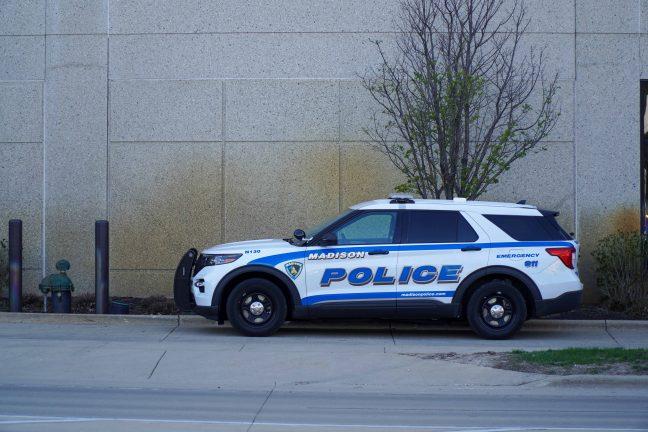The Police and Fire Commission — the Madison civilian board tasked with selecting the city’s police chief — announced new measures allowing the public to give their input in the search to fill the position.
The announcement came nearly a year after former Madison Police Department Chief Mike Koval abruptly resigned in September 2019. Since then, the shooting of George Floyd put a spotlight on police brutality and systemic racism against Black Americans.
Though they are nationally well-regarded, the MPD has its own controversies regarding the killing of unarmed Black men. According to the Wisconsin State Journal, MPD officer Matt Kenney shot and killed an unarmed Black man named Tony Robinson. Kenney claimed Robinson attacked him in a dark stairwell.
According to the PFC’s website, the new measures will include two virtual town halls, a call-in session at both local Spanish-speaking radio station LaMovida and the English-speaking station WORT, online small-group discussions and an online survey, in addition to already accepting emails and voice messages.
Local social justice groups, such as Freedom Inc., welcomed the PFC’s increased transparency over the selection process, though they expressed hopes that the new measures would be just the first step in a series of changes to the MPD. Director of Community Power Building at Freedom Inc. Mahnker Dahnweih said she would like to see MPD replaced with community-controlled policing.
“What we actually need is to be able to conduct independent and concurrent investigations of police murder,” Dahnweih said. “And we need the power to hire and fire police.”
Dahnweih said while Madison’s white and affluent residents receive great service from the MPD, Madison’s Black and lower income communities suffer from over-policing and hyper-surveillance, which when combined, reduce a community’s quality of life.
July 22, Freedom Inc. was among the 16 community organizations that signed a letter to the PFC which decried and listed what they viewed as anti-Black and white-supremacist actions within the MPD. The letter demanded the PFC hire a police chief whose guiding philosophy would be that the police’s ultimate purpose is to make their roles obsolete.
Voces de la Frontera, a community organization dedicated to protecting and expanding worker’s rights, also signed off on the letter. Bianca Tomasini of the Voces de la Frontera’s Madison chapter said she would like to see a police chief who respects sanctuary cities — cities that limit their cooperation with federal immigration authorities — and supports immigrant driving permits.
Tomasini said even if one only values their contribution to the economy, undocumented immigrants do more than their fair share. Most of them pay taxes, she said, and all of them —through working and shopping— support the U.S. economy. Tomasini also said if they ever run into a legal problem, deportation should be the last resort.
Voces de la Frontera also advocates for immigrant driving permits. According to Tomasini, these permits would confer no other legal benefit aside from the ability to drive — which many undocumented immigrants need in order to arrive at work. She also said she believed a sympathetic police chief would be very helpful on these two fronts.
“Advocacy from law enforcement is really important at the Capitol,” Tomasini said. “They have a huge role to play.”
Tomasini said she already gave her input to the PFC. When asked about the PFC’s upcoming call-in session at Madison’s local Spanish-speaking radio station, LaMovida, Tomasini said she thought it was good outreach.
In an email, MPD Public Information Officer Joel DeSpain said the MPD fully supported the PFC and was confident the board would find the right chief to lead the MPD forward. DeSpain also said there would always be challenges facing the department, but placed importance on continuing to build trust with the community.
According to the Wisconsin State Journal, an independent consultant hired by the city found the MPD was “far from ‘a Department in crisis.’” The same article said the MPD was also recognized nationally and internationally for their problem-orientated policing, work with the mentally ill and for increasing their number of female officers.
When asked to respond to the MPD’s national reputation, Dahnweih said these largely positive reviews will not satisfy what she perceives as a fundamental need for change in policing.
“You can change the face of an institution, but you can’t change the mandate of that institution,” Dahnweih said. “More Black cops, more women cops, is not the answer. Any time that somebody is murdered, anytime that somebody is wrongly arrested, any time that happens, it destroys people’s lives and families.”


